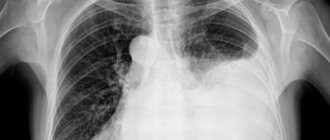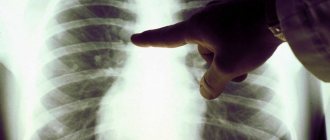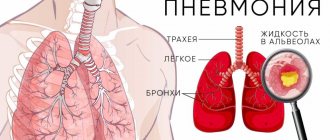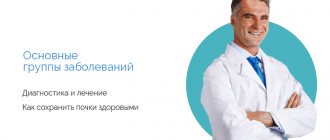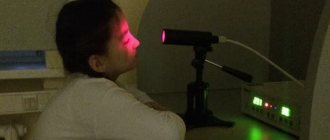Surgeons treat various pathologies, and treatment does not always include surgery.
Surgeons, like regular doctors, can have different specializations. For example it could be:
- Cardiac surgeon - performs operations that eliminate pathologies of the cardiovascular system. For example, this is necessary for myocardial infarction or coronary heart disease.
- Neurosurgeon - performs surgical intervention for injuries and diseases of the nervous system. Operates on the brain, spinal cord, and peripheral nervous system.
- A transplantologist is a doctor who transplants organs, including artificially created ones.
- Oral and maxillofacial surgeon - surgically treats diseases in the jaw, oral cavity, face, head and neck.
- Surgeon-oncologist - in case of detection of operable tumors, it is this doctor who saves the patient’s life, saving him from both malignant and benign tumors.
There are many more specializations, some have a very narrow profile (plastic surgery), and some, on the contrary, are extremely broad. The latter primarily includes general surgery.
What is thoracic surgery
The thorax is the region of the chest that includes the thoracic spine with the ribs extending from it, the chest wall, the diaphragm and the upper part of the abdominal cavity. The field of surgery dealt with by a thoracic surgeon covers a wide range of diseases of the chest organs - lungs, pleura, bronchi, trachea, esophagus. It includes providing assistance for injuries, acute conditions, pathologies, cancer and inflammatory processes.
With the modern variety of diagnostic methods, the thoracic surgeon has the opportunity to objectively assess the clinical picture of the disease and choose the appropriate method of surgical treatment. There are the following main methods of thoracic surgery:
- thoracotomy;
- thoracoscopy;
- thoracentesis;
- puncture of the pleural cavity;
- drainage of the pleural cavity.
Thoracotomy
The central method of thoracic surgery is thoracotomy - opening the sternum using an incision in the intercostal tissue. It is performed in different areas, the location of the incision depends on the location of the disease and the objectives of the operation. There are median, anterolateral, posterolateral thoracotomy. During surgery, the patient lies on his back (during most open heart surgeries) or on his side (during lung resection). Minimal thoracotomy is the latest achievement of thoracic surgeons - the incision size does not exceed 10 cm.
Thoracoscopy
An endoscopic examination method, called thoracoscopy, allows the thoracic surgeon to conduct a broad diagnosis of the pleural cavity, the outer lining of the lungs, allowing for some types of micro-operations on the organs of the mediastinum, pleura, and lungs. Thoracoscopy is performed using a laparoscope, which is inserted into the pleural cavity along with a camera installed on it and a device for aspiration. Through it, it is possible to take a biopsy, administer a drug, and use other surgical instruments.
Thoracoabdominal surgery
The field of surgery that involves caring for patients with diseases of the chest and organs located in the upper abdomen, such as the stomach or diaphragm, is called thoracoabdominal surgery. The relevant departments provide treatment:
- peritoneal tumors;
- emphysema;
- pulmonary hemorrhages;
- hernias of the chest wall, diaphragm;
- diseases of the esophagus;
- malformations of the mediastinum;
- chest wall injuries and their complications;
- damage to the trachea and bronchi.
Thoracic oncology
A surgeon who specializes in treating benign or malignant tumors in the chest cavity and upper peritoneum is called a thoracic oncologist. He is in charge of oncology, developing in:
- mammary glands;
- lungs;
- heart;
- esophagus;
- mediastinum;
- liver;
- stomach;
- thyroid and thymus glands.
Content
- General information
- What organs does a thoracic surgeon treat?
- What diseases does a thoracic surgeon treat?
- Breast diseases
- Chest wall diseases
- Lung diseases
- Pleural diseases
- Pericardial diseases
- Mediastinal diseases
- Diseases of the esophagus
- Diaphragm diseases
- Complications of postoperative treatment
- When to contact a thoracic surgeon
- How to prepare for your appointment
- Consultation stages
- Diagnostics
- Treatment
What does a thoracic surgeon treat?
A thoracic surgeon provides assistance to patients suffering from various diseases of the thorax and its main organs. These may be conditions caused by injuries - hemothorax, pneumothorax and chylothorax (accumulation of blood, air and lymph in the pleural cavity), treatment of tumors of the chest organs, bronchial diseases, pneumonia, pathologies of the pleura or pericardium (tissue lining of the heart). A specialist in the field of thoracic surgery diagnoses and treats patients with the following diagnoses:
- pleurisy;
- lung abscess;
- pulmonary artery blockage;
- tracheal stenosis;
- accumulation of pus (empyema) in the pleural cavity;
- pulmonary atelectasis;
- inflammation of the costal bone tissue;
- bronchiectasis;
- pathologies of the esophagus, thyroid and thymus glands.
Thyroid and thymus gland
The thyroid gland is responsible for the production of the main hormones that regulate metabolic processes. It is susceptible to open and closed mechanical damage, inflammatory diseases (thyroiditis), and can become a site for the development of a malignant tumor. A thoracic surgeon makes an accurate diagnosis and treatment (surgery) for cancer, cystic formations, nodular or toxic goiter of the gland.
The thymus gland or thymus, located in the center of the sternum, produces cells of the immune system, carries out lymphopoietic, endocrine and immunoregulatory functions. The state of the entire immune system of an adult and the development of all organ systems in a child depend on it. With an increase in size, hypofunction or hyperfunction of the gland and its other pathologies, autoimmune diseases develop, so timely examination by a doctor or surgeon specializing in diseases of the thorax is important.
Chest injuries
The following chest injuries are distinguished, in which victims are taken to the thoracic surgery department for emergency care:
- penetrating wound (gunshots, puncture wounds);
- industrial, road traffic injuries of a blunt nature;
- damage to the chest wall - fractures, bruises of the ribs;
- damage to mediastinal organs
The surgeon conducts a visual examination, percussion and auscultation of respiratory sounds, a complete examination of the body, and prescribes the necessary general and special laboratory tests. First aid includes ensuring free breathing (if foreign bodies get into the wound, they are removed as soon as possible to free the entire airway), relieving shock, and reducing pneumothorax tension. Further therapy is carried out according to the nature of the injury and the patient’s general medical history.
- Children's birthday menu with recipes
- Benefits of green tea: how to drink the drink
- How to hem trousers by machine or by hand. How to properly shorten and hem trousers with your own hands
Respiratory diseases
A surgeon who deals with diseases of the lungs and other respiratory organs is a specialist highly qualified in this area of medicine. The subject of its activity is inflammatory processes, damage, congenital or acquired pathologies of the bronchi, trachea, and respiratory tract. If necessary, performs surgical intervention for tuberculosis or cancer of these organs.
Surgical treatment of esophageal pathologies
Surgery on the esophagus is necessary for such pathologies as diverticulosis (deformation of the wall of the esophagus with the formation of cavities in its wall, leading to the accumulation of food debris in them), the formation of malignant and benign tumors, chemical or thermal burns. It can be performed by a surgeon specializing in the treatment of thorax organs, a professional in the field of thoracic surgery.
Diagnostics that must be completed before surgery
Before prescribing surgical treatment, it is necessary to undergo some examinations prescribed by the doctor.
First of all, a general blood and urine test is taken, tests are carried out for plasma coagulability, sputum microscopy, the presence of tuberculosis bacteria, and blood electrolytes.
The main instrumental diagnostics include:
- lung scintigraphy;
- radiography;
- thoracoscopy;
- Ultrasound;
- bronchoscopy;
- CT, MRI;
- spirography;
- esophagogastrography.
In emergency cases, diagnostics must be carried out quickly and as informatively as possible in order to quickly identify the cause of the problem and carry out timely surgery, which can sometimes save the patient’s life.
Prices:
| Code | Name of service | Prices |
| 1 | Initial appointment | 1200 |
| 2 | Repeated appointment | 900 |
| 3 | Calling a surgeon to your home | 3500 |
| 4 | Abdominal ultrasound | 2200 |
| 5 | Ultrasound of veins and vessels | 2400 |
| 6 | Doppler 2-3 trimester | 1200 |
| 7 | Rectoscopy | 1500 |
What does he do?
The competencies of a surgeon dealing with diseases of the thorax include making a diagnosis using modern diagnostic methods (ultrasound, MRI, tomography, x-ray examination), deciding on the need for surgical intervention, performing an operation, and managing the patient in the postoperative period. Thoracic surgery requires high qualifications, so most renowned medical institutes have departments that train these specialists.
Methods for diagnosing chest diseases
Thoracic surgeons have access to a variety of cutting-edge or traditional diagnostic methods, which increases the accuracy of diagnosis and determines the effectiveness of subsequent treatment. Diagnostics are used using the following tools and methods:
- ultrasonography;
- X-ray;
- CT scan of the chest;
- Magnetic resonance imaging;
- CT scan;
- bronchoscopy;
- spirography;
- thoracoscopy;
- pleural puncture;
- biopsy;
- angiography (to determine the condition of blood vessels).
Surgeries for malformations of the anterior chest wall
- Thoracoplasty for pectus excavatum with resection of costal cartilages and stabilization of the sternocostal complex with a metal plate (according to Paltia);
- Thoracoplasty for pectus excavatum deformity without resection of the costal cartilages and stabilization of the sternocostal complex with a metal plate (according to Nuss);
- Thoracoplasty for keeled chest deformity, combined deformities;
- Autochondroperichondroplasty with or without free autorib transplantation for congenital costomuscular defects;
- Muscle plastic surgery with a displaced thoracodorsal myofascial flap for congenital hypo- and aplasia of the pectoral muscles (together with microsurgeons);
- Thoracomioplasty for congenital cleft sternum according to Sabiston and in our modification.
When is a consultation with a thoracic surgeon necessary?
Other specialists - therapists, pulmonologists, gastroenterologists, oncologists - often refer you for consultation to a surgeon involved in the surgical treatment of thorax organs. Self-referral to this highly specialized specialist is possible if you have symptoms such as difficulty breathing, impaired swallowing, persistent cough with purulent expectoration, traces of blood in the vomit, chest pain of a focal or general nature. Whether or not to admit you to a hospital for a comprehensive examination will be decided by the doctor conducting the initial consultation.
Thoracic surgery in Moscow
The establishment of thoracic departments in hospitals and clinics has recently become a normal practice in healthcare. Thoracic surgery of the lungs and other organs of the thorax is a specialization of the surgical departments of the following clinics in Moscow:
- RNHC named after. Academician B. Petrovsky;
- Clinic of Thoracic Surgery and Oncology;
- Center for Respiratory Medicine Integramedservice;
- National Medical and Surgical Center named after. N.I. Pirogov;
- Filatov Children's Hospital;
- Institute of Surgery named after. A.V. Vishnevsky.
